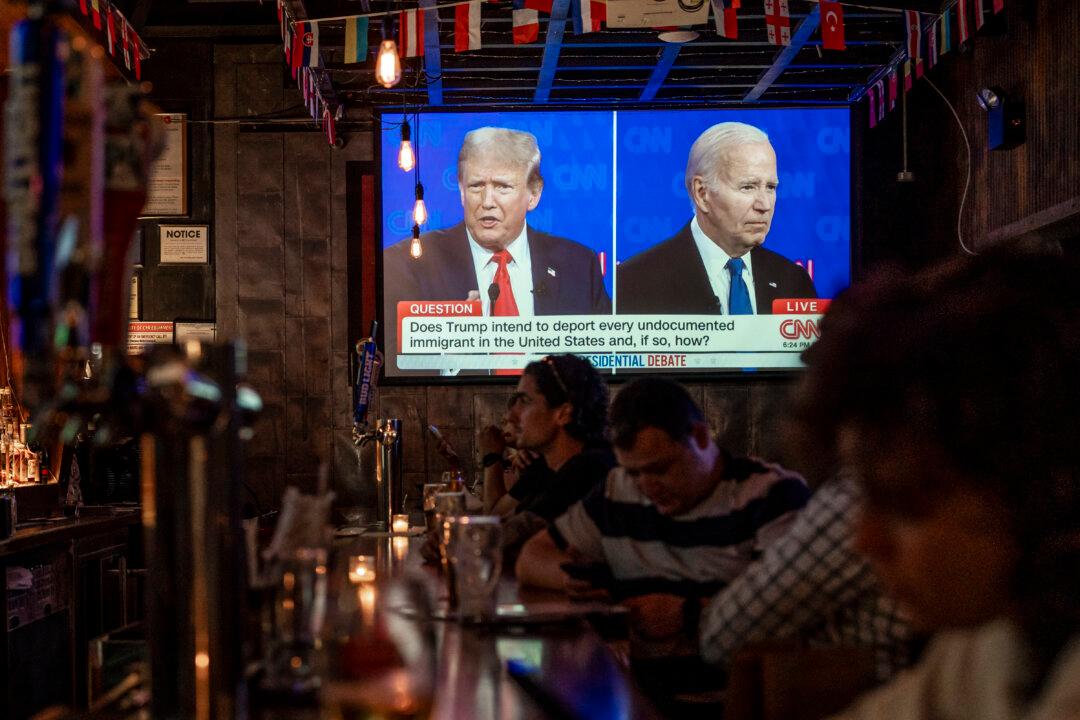Over 51 million people tuned into the June 27 television debate between President Joe Biden and former President Donald Trump, according to Nielsen Fast National data as cited by host CNN (as of 5 p.m. ET on June 28).
The 51.3 million people tuning into the debate is the lowest TV audience since the first 2012 presidential debate between President Barack Obama and former Massachusetts Gov. Mitt Romney. That garnered more than 46 million viewers, according to Nielsen.




